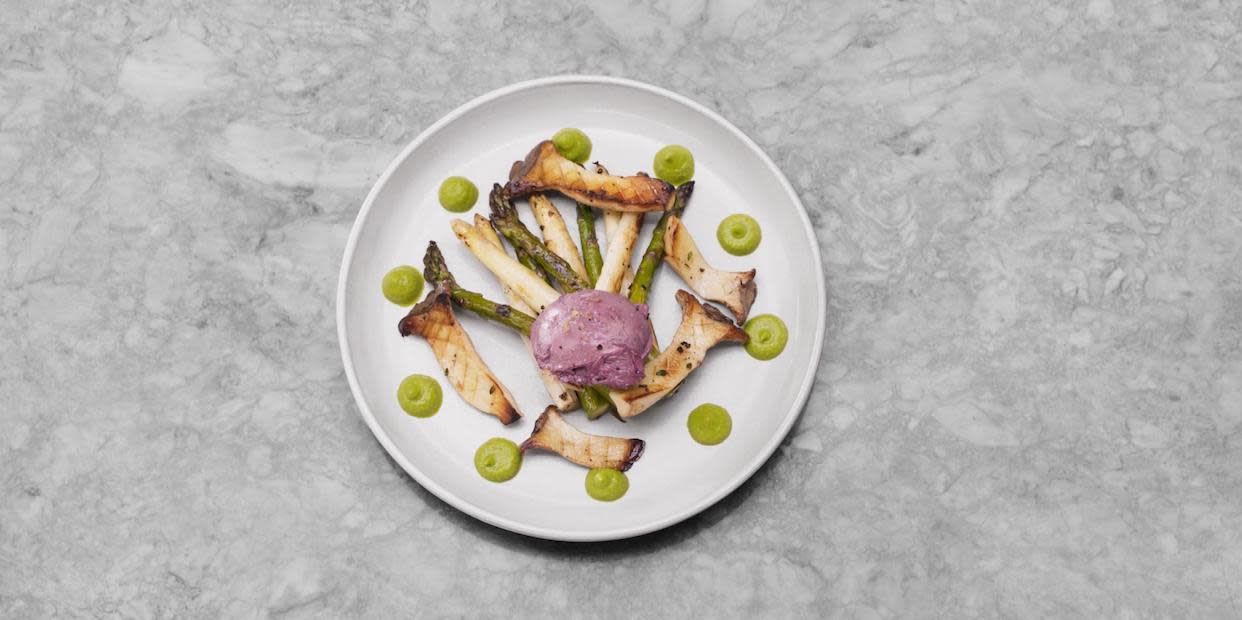How to Poach an Egg in Red Wine With Gordon Ramsay
Written by MasterClass
Last updated: Jun 9, 2024 • 1 min read
Poaching an egg in red wine gives your egg a brilliant reddish-purple hue. There’s no need to use expensive wine, a house red is fine. Room temperature eggs are the best to poach with because they won’t drastically lower the temperature of the poaching liquid. Gordon uses brown eggs in this dish but white eggs can be used as well.
When you poach an egg in red wine, the egg flavors the wine, and that seasoned wine can be used to poach over and over again. Pass the liquid through a sieve and store in the refrigerator for up to a week.
Gordon serves this red wine poached egg with king trumpet mushroom, sautéed asparagus, and asparagus purée. Learn how to make the complete dish here.
Learn From the Best
Recipe: Poached Egg in Red Wine
makes
Ingredients
1½ quarts red wine (like cabernet sauvignon or Burgundy-style red)
4 large eggs, at room temperature
1 tablespoon Maldon salt
2 teaspoons cracked black pepper
4 garlic cloves, crushed
6 thyme sprigs
2 bay leaves, dried or fresh
In a medium saucepan over medium heat, bring red wine, bay leaves, and crushed garlic to a rolling boil. Crack an egg into a small glass bowl. To poach, use a whisk to create a whirlpool in the center of the simmering wine, then carefully spill the egg into the center of the whirlpool. Poach until whites are firm and the yolk is just starting to set, about 2 to 2½ minutes. Make sure the wine stays at a rolling boil. If it starts turning into a rapid boil, turn the heat down a notch, and if the wine stops boiling, turn the heat up a notch.
To test for doneness, remove the egg from the wine with a slotted spoon and lift it high enough for you to examine the egg. If the egg flattens itself out on the spoon it is still raw in the center and you’ll need to place the egg back into the simmering wine for another minute. If the egg holds a domed shape on the spoon and feels slightly soft under your finger it is done. If the egg holds a tight, firm domed shape it is overcooked. Using a slotted spoon, transfer eggs to a plate lined with napkins to absorb the excess poaching liquid. Repeat the poaching process for the remaining eggs. The red wine poaching liquid can be strained, refrigerated, and reused 2 to 3 more times.
